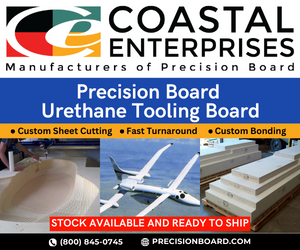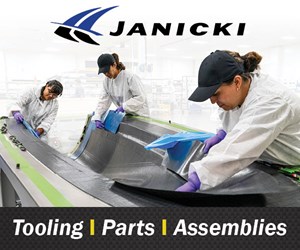Henkel to collaborate with Carbon Revolution on composite wheels
Henkel and Carbon Revolution join forces to speed OEM automotive one-piece carbon fiber wheels development.

Henkel and Carbon Revolution join forces to speed OEM automotive one-piece carbon fiber wheels development. Source | Henkel
Henkel (Düsseldorf, Germany), a global provider of high-impact solutions based on adhesives, sealants and functional coatings, has reached a strategic material supply agreement with Carbon Revolution (Waurn Ponds, Australia), manufacturer of one-piece automotive carbon composite wheels. The collaboration includes dedicated manufacturing facilities established at Henkel’s existing plant near Melbourne, Australia.
As the global automotive industry seeks lightweight solutions, one-piece carbon composite technology is an emerging choice for global carmakers when it comes to wheels. Single piece carbon fiber composite wheels can offer up to 40-50% weight savings compared to conventional aluminum wheels and an attractive surface finish.
“Based on a number of years of close collaboration with Carbon Revolution, we have extended our proven portfolio of composite material technologies to create proprietary solutions that meet the demanding performance specifications of the global carmakers,” says Konrad Brimo Hayek, senior business development manager for automotive components at Henkel. “The collaboration with Carbon Revolution is targeted at providing various global OEM carbon wheel programs with the best solutions available and includes active support from Henkel via dual production capacities in the EU and locally in Australia.”
The lower inertia of composite wheels is said to enable significant reductions in unsprung rotational mass, translating into vehicle handling benefits including better steering feel, better traction, and improved accelerating and braking response. In terms of sustainability, the technology can also enhance fuel or electrical power efficiency and help automotive manufacturers reduce the CO2 emission balance of their fleets.
“As lightweighting components, carbon wheels can make a significant contribution to minimizing the energy consumed when spinning the wheels up and dragging them back down every time the car is accelerated or slowed. This saves fuel on combustion engine vehicles and battery power on hybrid and fully electric vehicles, maximizing their range,” says Carbon Revolution chief technology officer Brett Gass. “Henkel’s advanced material technology also adds to the overall reduction of our carbon wheels in noise, vibration and harshness when compared to steel or aluminum wheels, which means automakers can save weight on additional sound insulation.”
Related Content
-
Novel dry tape for liquid molded composites
MTorres seeks to enable next-gen aircraft and open new markets for composites with low-cost, high-permeability tapes and versatile, high-speed production lines.
-
Infinite Composites: Type V tanks for space, hydrogen, automotive and more
After a decade of proving its linerless, weight-saving composite tanks with NASA and more than 30 aerospace companies, this CryoSphere pioneer is scaling for growth in commercial space and sustainable transportation on Earth.
-
Plant tour: Albany Engineered Composites, Rochester, N.H., U.S.
Efficient, high-quality, well-controlled composites manufacturing at volume is the mantra for this 3D weaving specialist.

.png;width=70;height=70;mode=crop)














